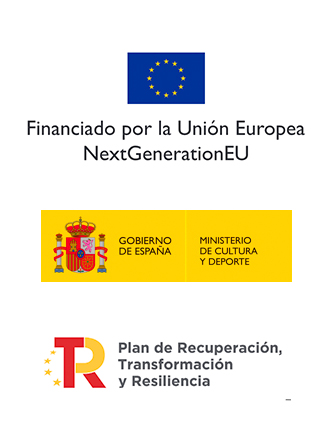.
TODO ES NÚMERO
2nd solo show by 108 en Swinton Gallery
January 27th 2023 – 1March 11th 2023
The interest of the artist 108 (Guido Bisagni, Alessandria, Italy 1978) in the exploration of the ultimate substance of Things leads him to investigate the basis of our existence and everything that surrounds it. Thus, if in his previous exhibition at Swinton Gallery (“To the clouds”, 2021) he wanted to study the reality of the Human Being in his relationship with nature, so he set up an Orphic song of praise to nature, in this new exhibition the artist explores the structures of our reality that can be described by numbers and the different mathematical relationships that exist among them.
An expression from Pythagoras gives the exhibition its title.
This choice is basic, since it was Pythagoras of Samos (Greece, c. 570 BC) who created a philosophical school, almost a secret society, which founded the basis of what contemporary mathematics is today. The Pythagorean school was sometimes described as a sect, since its searches, its learning and its most innovative resolutions related to The Unlimited were often kept secret, since they were considered transcendental for human truth by the members of the group, and were supposed to be a well-kept secret among the small group of initiates. It is rumored that one of his followers, Hippasus of Metaponto, died intentionally after revealing the secret of irrational numbers. What is not clear is if the cause was his own intention due to a bad conscience or if it was Pythagoras himself who threw him into the open sea. Don’t suffer too much, the members of Arithmos faithfully believed in the transmutation of souls. It is also curious that Pythagoras died in Italy, in Metaponto, the birthplace of Hippasus.
All this transcendent mathematical knowledge, which Pythagoras and his followers treasured, of course had tangible applications for the rest of mortals concerned with wealth generation. The arithmetic formulas provided by the Pythagoreans were of great help for the precise distribution of land properties. In these cases, the contemporaries of Pythagoras, who were looking for an interested application in numbers, did not bother about the previous and abstract reasoning and why the Pythagorean Theorem helped them to mark their lands accurately. The only interest that moved them was to isolate the boundaries of their land so that their neighbors would not take away an inch of their property, finally to defend their private property and, if the other did not do the math correctly, to take a little bit of wealth from the innocent neighbor.
And it is then that another of the serious perversions of the Human Being begins, which has led us to our current existence. The preference of the utilitarian against the intangible, material and economic interest against pure conceptual thinking, or capitalist madness against the generosity of selfless madmen. We can assure that the first trend became predominant very quickly.
There have been many initiates behind the Pythagoreans who have dedicated their lives to the search for the infinite. Plastic artists, writers, musicians, thinkers and anonymous people who in their regular life have turned their backs on material interest to forget it in a drawer and spent their time looking for questions, and not answers.
The French mathematician Henri Poincare at the beginning of the 20th century in “The value of science” states that:
[…] Mathematics have a triple purpose. They must furnish an instrument for the study of nature. But that is not all; they have a philosophical purpose and, dare I say it, an aesthetic purpose. They must help the philosopher to go deeper in the notions of number, space, time. And, above all, their followers find in them joys analogous to those provided by painting and music […]How important it is for the spirit to obtain aesthetic enjoyment through our senses, but we must not forget that purely intellectual enjoyment also exists. For many people, aesthetic pleasure is not a necessity and therefore it is not useful, it does not serve them to produce something material, just as children or the elderly do not produce and for this reason they are citizens of less value. But the question we ask ourselves is whether the world would be a better place if we, instead of univocally look for the pragmatic utility of our intellectual work, we use our time to look for the intangible, the immaterial, the non-malleable, and therefore, love and generosity.
The search for mathematical relationships in our reality that 108 raises in this exhibition invites us to move away from the practical routine that floods us in our lives, related to the needs of the system. Let’s dive into his compositions, let’s look for the aesthetic enjoyment of discovering a previously hidden rhythm. Let’s search, even without success, for mathematical formulas that will be intimate and probably unique to each one of us. Let’s open the non-productive senses of our spirit and let’s be one without fractures, let’s be numbers that only make sense in relation to others, and let’s throw away the practical needs of our physical reality. Fundamental in the genesis of this exhibition is the fact 108 is a musician and his scientific studies. For 108 music is pure abstract art, in his words:
“I need to find a melody, which for me is central, which generates the main form of the painting. Sometimes there is also a flat sound, without melody, pure or without noise. Then I add other sounds that can be, when there is melody, harmonized or dissonant. Then I add filters, using effects in some special places. In this same way I start to add some “effects” to my shapes, like a “delay” effect or a “distortion”. All the proportions, the sizes of my compositions are based on numbers. Sometimes using strict rules, sometimes simply by chance, thanks to the spontaneous appearance of unexpected mathematical relationships.”
Let’s do like mathematicians, admire the delicate harmony of numbers and shapes, and marvel ourselves when a new discovery opens up an unexpected perspective. Let’s stop being simple machines that execute the dictates that the algorithms of today’s society mark us. Let’s free numbers from their material function, let’s rebel against the system by confronting it with the beauty of devising, let’s abolish the slavery of applied mathematics. Let’s cultivate mathematics in a disinterested way, and let’s not look for a practical application outside of the pure aesthetic experience to our discoveries. Beauty will then be within us, and hopefully, permanently.
Lev Tolstoy said that those people who work only to provide an immediate practical application of their efforts will maybe get rich, but they will not leave anything valuable behind, and above all, they will not have made Mankind better.



